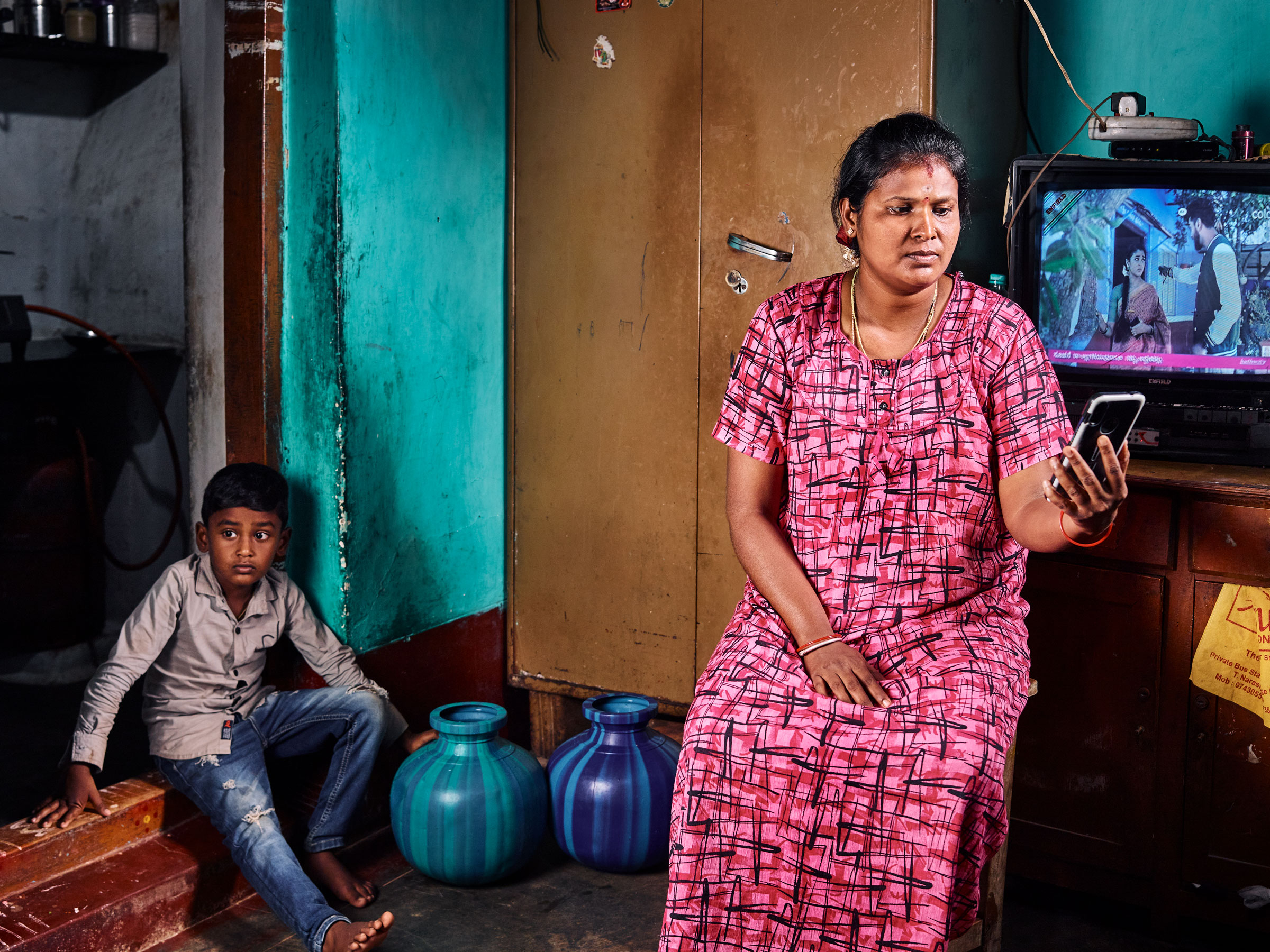BILLY PERRIGO

In the shade of a coconut palm, Chandrika tilts her smartphone screen to avoid the sun’s glare. It is early morning in Alahalli village in the southern Indian state of Karnataka, but the heat and humidity are rising fast. As Chandrika scrolls, she clicks on several audio clips in succession, demonstrating the simplicity of the app she recently started using. At each tap, the sound of her voice speaking her mother tongue emerges from the phone.
Before she started using this app, 30-year-old Chandrika (who, like many South Indians, uses the first letter of her father's name, K., instead of a last name) had just 184 rupees ($2.25) in her bank account. But in return for around six hours of work spread over several days in late April, she received 2,570 rupees ($31.30). That’s roughly the same amount she makes in a month of working as a teacher at a distant school, after the cost of the three buses it takes her to get there and back. Unlike her day job, the app doesn’t make her wait until the end of the month for payment; money lands in her bank account in just a few hours. Just by reading text aloud in her native language of Kannada, spoken by around 60 million people mostly in central and southern India, Chandrika has used this app to earn an hourly wage of about $5, nearly 20 times the Indian minimum. And in a few days, more money will arrive—a 50% bonus, awarded once the voice clips are validated as accurate.
Striking Writers and Actors In New York Weigh In On AI's Impact on Hollywood
















